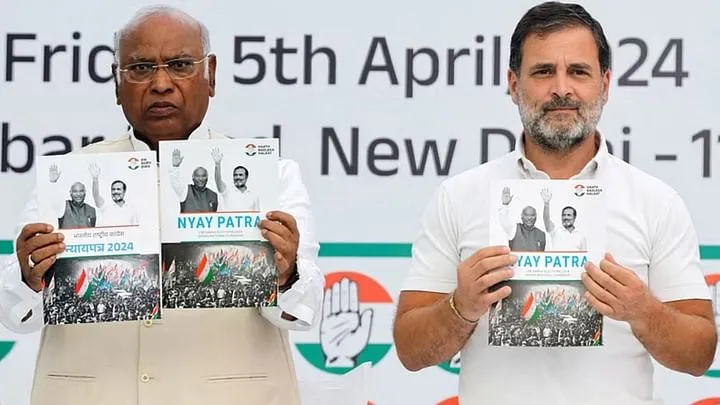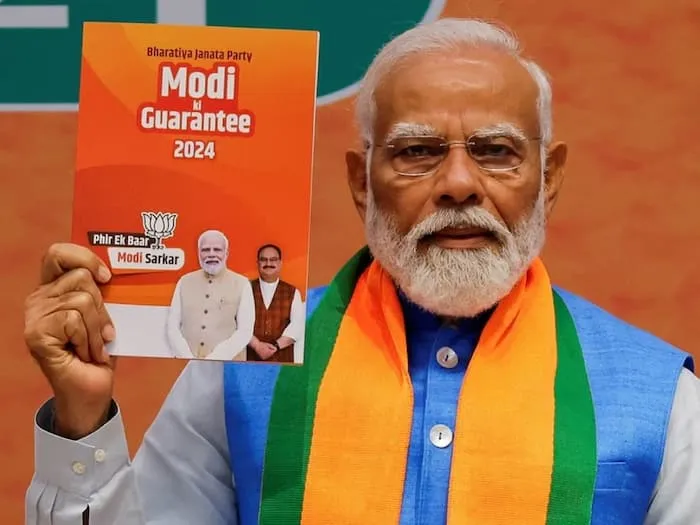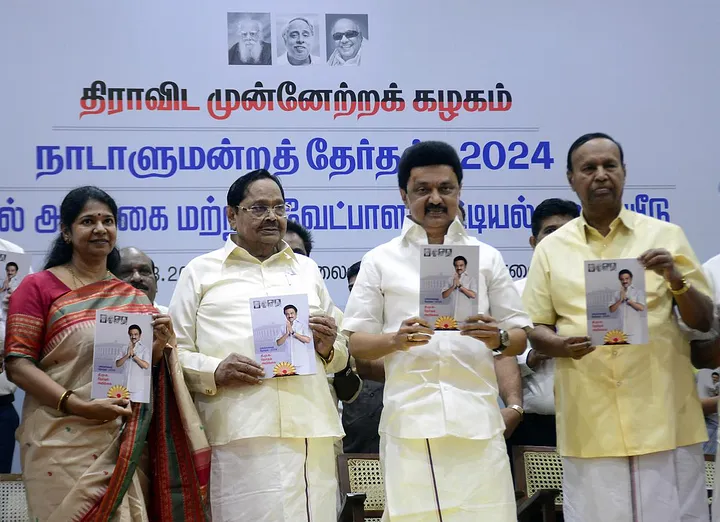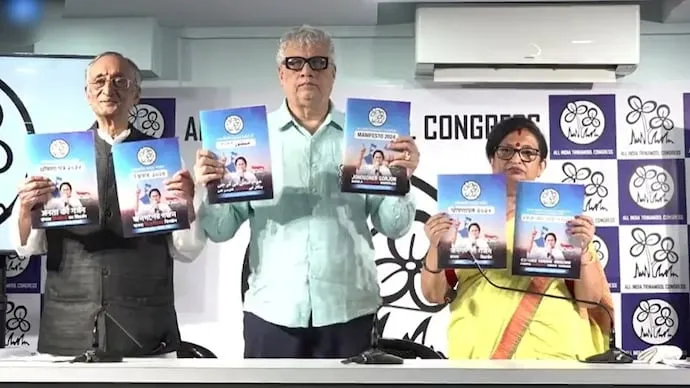Battle of Freebies: Analysing the Freebie Tactics in the 2024 Lok Sabha Elections
The Political parties have released their election manifestos and the nation is amidst electing members for the 18th Lok Sabha, let's delve deeper into the analysis of freebies in the manifestos of the political parties.
As the 2024 Lok Sabha elections unfold, political parties are leaving no stone unturned in their bid to win over voters. One common tool employed by many parties is the offering of freebies that can range from cash transfers to healthcare facilities, from educational initiatives to housing schemes.
Building Political Narrative through Freebies: INC's Electoral Promises
The Indian National Congress, through its “Nyay Patra,” is spearheading its campaign with an array of promises intended to tackle poverty and enhance social welfare, including the Mahalakshmi scheme, which offers Rs. 1 lakh annually to each impoverished Indian family as an unconditional cash transfer. This approach, while seemingly bold in its gesture towards economic empowerment, raises concerns about the reliance on cash giveaways rather than sustainable development initiatives. Furthermore, initiatives such as installing free napkin vending machines in public areas and offering free education from Class I to Class XII in public schools underscore the party's dedication to addressing critical social concerns. However, it's essential to recognize that these offerings, while aimed at development, are also strategic freebies designed to attract voters.

Leveraging the Existing Schemes to Target Key Voters: BJP's Sankalp for 2024 Lok Sabha
On the flip side, Bharatiya Janata Party's Sankalp Patra diverges from the direct cash giveaways approach, instead opting for a subtle distribution of freebies under the disguise of ongoing schemes like Ayushman Bharat and PM Garib Kalyan Anna Yojana. While the manifesto appears to prioritise continuity over change, it reveals an underlying strategy to appeal to the interests of key demographics-GYAN-the Garib, Yuva, Annadata, and Nari, who have emerged as the party's new targeted vote bank. Additionally, the promise of free ration for the next five years under PM Garib Kalyan Anna Yojana and free electricity for poor households through PM Surya Ghar Muft Bijli Yojana further solidifies the party's stance on providing essential services without direct cash transfers.

Targeted Freebies: DMK's response to the National Political Influence
In its manifesto for the 2024 Lok Sabha Elections, the Dravida Munnetra Kazhagam has promised two significant freebies aimed at different demographics. Firstly, they pledged a monthly entitlement of Rs. 1,000 for all women in every state, addressing gender-based financial disparities. Secondly, college students were assured of receiving a free SIM card with one GB data per month, aiming to enhance access to digital resources for educational purposes. The timing of these promises, notably in Tamil Nadu, could be attributed to the “Modi effect,” reflecting the influence of Prime Minister Narendra Modi's campaigning and increased focus on southern states with BJP's Southern Outreach programs.

Mamta's Populist Electoral Strategy to Tackle Modi
The Trinamool Congress has made sweeping promises in its manifesto for the 2024 Lok Sabha Elections, aiming to win over voters with a barrage of freebies. The pledge of free housing for all poor families across the nation, coupled with doorstep delivery of ration and five kgs of free ration per month for all cardholders, raises eyebrows about the feasibility and potential misuse of such schemes. Furthermore, the promise of 10 free gas cylinders per year to Below the Poverty Line (BPL) families is seen as a short-term solution that fails to address deeper issues like lack of sustainable energy sources. These initiatives, have been strategically rolled out in the backdrop of a fierce competition witnessed in the 2019 elections, where the BJP secured 18 seats to the TMC's 22, seems to have prompted this desperate bid for votes.

Populism Vs the Economic Health of the Nation
Promises of freebies in party manifestos, released just days before the first phase of voting raises concerns about the sincerity of such pledges and their potential to affect the electoral process. According to the Lokniti-CSDS survey, while 23% of respondents trust Modi's guarantees in the BJP's manifesto a lot, 17% express the same level of trust in Rahul Gandhi's promises.
The estimated cost of initiatives like the Mahalaxmi Scheme proposed by Congress, totaling to Rs. 6 lakh crore, and the DMK's proposal to provide Rs. 1,000 per month to every woman in every state, raises concerns about the origin of substantial funds required to sustain such schemes and their potential economic ramifications for the nation. The surge in state debt in terms of GSDP increased by 12.6% between 2018 and 2023, as reported by the Reserve Bank of India. Simultaneously, FDI inflows to India decreased to 1.47% of GDP in 2022 from 1.56% in 2018, according to the United Nations Conference on Trade and Development, affecting the capital and other developmental spending. This trend underscores the repercussions of distributing freebies.
While the nation eagerly awaits for the showdown in the 2024 Lok Sabha Elections, the impact of these promised freebies will come into sharper focus. However, amidst the anticipation, it is crucial to recognise that while such handouts might sway the voters in the short term, they inevitably raise pressing concerns on the economic health of the nation in the long run. Only time will reveal the true cost and consequences of prioritising populism over prudent fiscal policies.
